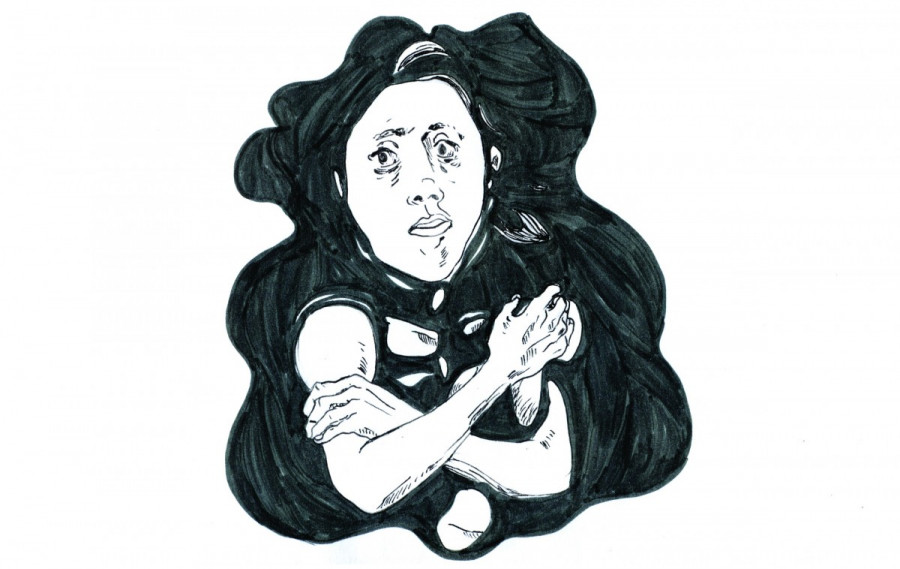Bringing Mental Health Issues Out of the Shadows
The Crippling Stigma and Lack of Help for Students with Psychological Problems
It took me a long time to forgive myself for what had happened to me back in high school, when I was diagnosed with both obsessive-compulsive disorder and depression.
There were days when it just seemed easier to give up instead of being stuck in a cycle of helplessness. When you’re trapped in your own mind, you’ll just keep running into yourself.
I felt that no one would understand what I was going through, because how could they? To someone not being affected by it, mental illness is a hard thing to try and wrap one’s head around. They wouldn’t be able to help me, and would probably just get sick of trying.
I couldn’t tell my parents because I didn’t want them to see how their daughter was suffering; I was always supposed to be the strong one in the family, and because of this I was alone.
One of the hardest parts of my ordeal was the way I was judged by those around me. People at school never said anything, but they didn’t need to—I saw the way they looked at me and whispered about how sickly I had become. The thing about high school is that once people find out there’s something “wrong” with you, you’re no longer seen as an equal; you’ve suddenly become someone less, someone abnormal.
It’s especially true when there’s something wrong mentally. The mentally ill have always been shunned, not just in high school, but also in society as a whole. Things aren’t as bad as in the past, but even now I’m still embarrassed to tell my peers that no, I can’t let you have a sip of my water because of how cripplingly afraid of germs I am.
Eventually, when it became too much to handle, I confessed my dark thoughts to my parents. They took me to see a psychiatrist, and after an hour and a half of my own brutal honesty I was handed a diagnosis.
After seeking help it didn’t take long for happiness to reappear in my life, and my pain was no longer just my burden to bear. Between a therapist and the support of my family, life got substantially better for me. I was happy.
When I came to university three years later, things started to become difficult once again. Here I’m far from home, away from my family and my best friends. Slowly I began to sink back into the pit I had made years before, and I let it happen because I was scared.
Talking to fellow first-year students, I discovered that I was not alone in my problems. Many others were also feeling anxious, depressed and isolated, but felt that they couldn’t share these thoughts with others.
One woman I spoke to had attempted to reach out to a psychologist here at Concordia, but had had very negative results. She told me that if the psychologist had been dealing with someone with fewer problems they might have been helpful, but that they didn’t make her feel any better.
I couldn’t believe what I was hearing but she just shrugged it off, saying that she guessed she was just too complicated a case, something that no person dealing with psychological issues should think.
Perhaps it was just that particular psychologist, perhaps she didn’t explain herself well and perhaps it was just a misunderstanding. But I don’t know if I can believe that, especially because she was not alone in her experience.
Concordia student Marlon Kroll also expressed great disdain for Concordia Health Services. After feeling anxious and unfocused for a significant period of time, Marlon had decided to seek help.
He made an appointment with a Concordia psychiatrist, who decided that grilling him on his life for 30 minutes gave her enough information to understand who he was and what he was going through.
He ended up leaving her office with a prescription for Ritalin.
He felt that it was “ridiculous” to be prescribed medication right off the bat like that, so he refused to take it.
Eventually, Marlon decided to go back to the psychiatrist and express his feelings, but things didn’t go so smoothly. She told him that if he didn’t want to take the drugs then it was his own fault and there was nothing left to talk about. In her eyes she had done what she was supposed to do, and it didn’t matter that he was still suffering.
The initial response when a student seeks help because of mental health issues should not be to simply give them drugs and send them on their way. Life is so much more complicated than that, especially for university students who are still figuring themselves out.
What we really need is someone to talk to; we need support. I was fortunate enough to have all that and more from my psychologist back in Toronto, but these students were getting nothing.
So who’s to blame? Is it the doctors, Concordia Health Services, the administration, the Ministry of Education, Recreation and Sports? Why are those in need not being paid attention to?
These students didn’t turn to friends for help because of how intensely stigmatized mental illness is, and it’s extremely unfortunate. Because of this stigma people are suffering alone. I was suffering alone.
People need to rise above their tendency to judge others; chances are all of us will experience some form of mental unrest in our lifetime, no matter how insignificant it may seem.
Yes, I have OCD, and yes, there have been times when I locked myself indoors for a period of time. But I’m still me, and the woman with depression and the man with anxiety are still themselves.
Mental illness does not make you any less of a person, and more needs to be done to help those who are suffering.





web_600_375_90_s_c1.jpg)
_600_375_90_s_c1.jpg)
_600_375_90_s_c1.jpg)